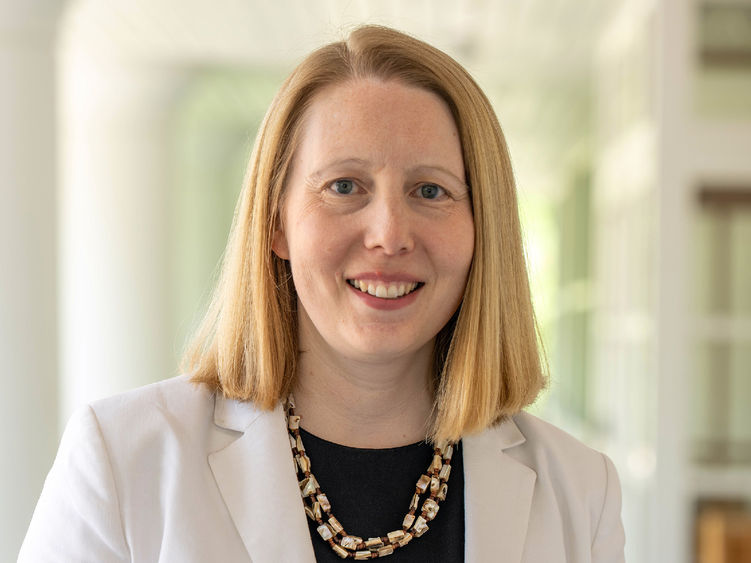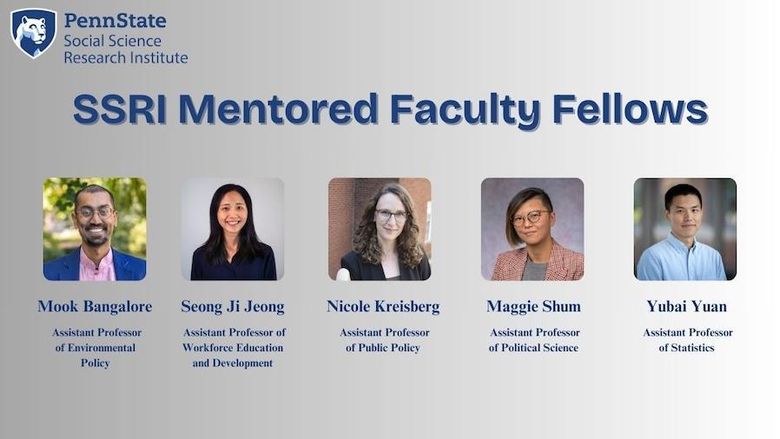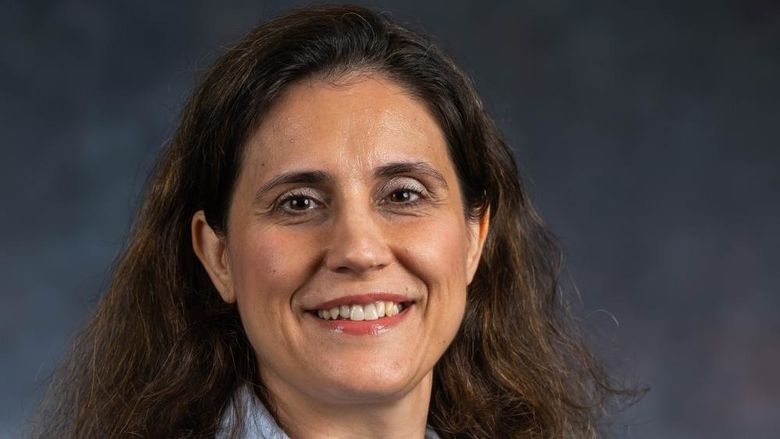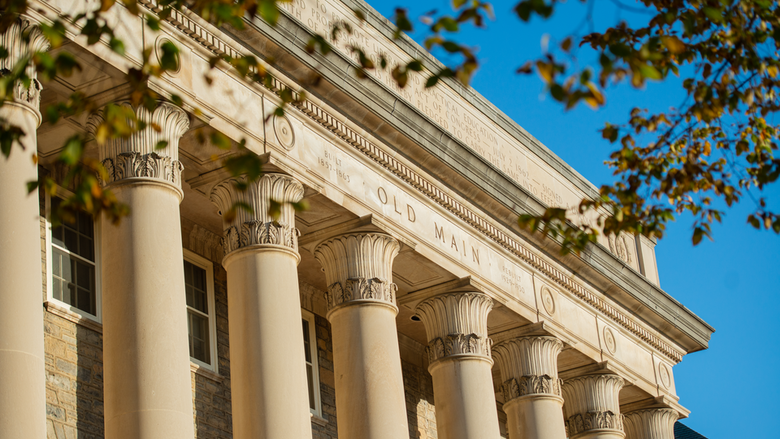
Jacqueline O’Connor
UNIVERSITY PARK, Pa. — Jacqueline O’Connor, professor of mechanical engineering in the College of Engineering and Ihab Ragai, professor of engineering at Penn State Behrend, are the recipients of the 2025 Milton S. Eisenhower Award for Distinguished Teaching.
The award recognizes excellence in teaching and student support among tenured faculty who have been employed full time for at least five years with undergraduate teaching as a major portion of their duties. Milton S. Eisenhower, brother of former U.S. President Dwight D. Eisenhower, served as president of Penn State from 1950 to 1956.
Jacqueline O'Connor
O’Connor said her teaching philosophy centers around two goals: creating a learning environment that encourages a diverse spectrum of students to become skillful scholars and providing students with meaningful educational experiences that train them to be high-impact engineers.
“All the methods that I incorporate into my classes are evidence-based strategies from educational literature or training I have received,” O’Connor said. “Evidence based strategies are built on established teaching and learning frameworks, allowing for rigorous implementation and assessment of their efficacy in a classroom. Incorporating evidence-based strategies is not only important for ensuring the success of the methods, but also for my increasing work in engineering education research.”
O’Connor fine-tuned her approach through two engineering education research projects funded by seed grants from the Leonhard Center and the Schreyer Institute. She said being both an educator and an educational researcher has significantly improved her teaching outcomes.
“While I am a teacher first, the research lens has taken my educational innovation to the next level and supported my two teaching goals,” O’Connor said.
First, she creates an environment where diverse groups can learn. She uses a number of tools to create lessons that engage, in and out of the classroom. They’re supported by readings, videos, homework, and quizzes that directly relate to the material and activities in class so that students have continuous and frequent engagement on the topics.
“This variety of sources also helps support students with a range of educational backgrounds and learning styles,” O’Connor said.
That also requires giving students the skills they need to advance their own education. Along with her colleague, Andrea Gregg, she created a strategy called ALM — Active Learning and Metacognition, which outlines a process by which students learn, use, and reflect on concepts in a cyclic manner to improve understanding.
Her second goal — providing meaningful educational experiences where students become high-impact engineers — uses examples, case-studies, real-life data, and practicing engineers from relevant industries to show how these core concepts have practical implications.
“This approach prepares students to be highly effective engineers after they graduate because they not only know the fundamentals but have seen those fundamentals applied in real-life contexts,” O’Connor said. “We discuss contemporary issues and the broader context of engineering work.”
Nominators said O’Connor is a passionate engineer who wants to inspire the next generation of leaders in her field.
“Dr. O’Connor passes on her passion to her students through vivid examples and dynamic teaching approaches,” a nominator said. “She brings curiosity to the classroom, turning core concepts into tangible objects and elements that surround us.
Ihab Ragai
Ragai said his philosophy is rooted in his desire to have a meaningful impact on his students’ lives and to foster intellectual and personal growth. He said the role of an engineering educator is to create an environment where all can learn core concepts and how to apply them to real life scenarios. He wants to nurture his students’ capacity for critical thinking and lifelong learning. He strives to create an environment where all voices are valued and heard, encouraging a sense of belonging and respect among students from all backgrounds.
“I am particularly attuned to the unique challenges facing underrepresented groups and actively work to empower all students to succeed and contribute meaningfully to the engineering field and society,” Ragai said. “I am committed to ensuring that all students have equitable access to the opportunities and resources provided in my classes. I actively consider the varied challenges and advantages that each student may bring, working to create a learning environment where everyone can thrive.”
To create this environment, Ragai takes a dynamic teaching approach and values feedback from students and peers.
“As an engineer and educator, one of my paramount goals is to help students transform into qualified engineers who possess a mastery of their core skills as well as the ability to apply their knowledge in the workplace ethically and confidently,” Ragai said. “I create an environment, both in and out of the classroom, that exposes students to practical applications of what they are learning, and I leverage my industrial and research experience to accomplish this.”
Hands-on demonstrations of engineering concepts, theories, and principles are a staple in Ragai’s classroom. That’s supplemented by theory and relevant examples gleaned from his three-decade career in both industry and academia.
While engineering concepts remain relatively unchained, he said, teaching is ever evolving. His role isn’t just to help his students learn, it’s to understand the “why” of learning, and how these concepts relate to problems they’ll face in their careers.
“Lifelong learning and ongoing professional development is crucial within the field of engineering,” Ragai said. “I teach this to my students and practice it myself. My students are required to look outside their textbooks to find related industry standards. I highlight the importance of becoming members of professional organizations and keeping current with licensing requirements. I encourage them to become active members of society and support them through academic mentoring, early career counseling and professional development advising.”
Nominators said Ragai is passionate about teaching engineering and inspires others with his enthusiasm.
“Dr. Ragai brings a wealth of industry experience that enriches his lectures with real-world examples, enabling students to grasp complex engineering principles in a practical context,” a nominator said. “With an energy and enthusiasm that is almost superhuman, he creates an inclusive learning atmosphere that not only encourages, but also expects, active participation from everyone.”






